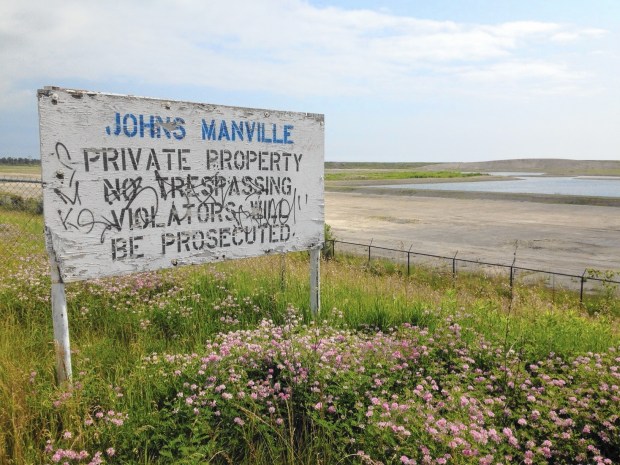If our presidential and vice presidential hopefuls are going to name-call over military service as they run up toward the Nov. 5 election, perhaps they could first address the state of housing on many military installations.
One of them is Halsey Village at Naval Station Great Lakes, which looks like one of the most dismal places to live on any military base or post. The Department of Defense has done little to fix what has been labeled a “zombie village” for the Navy neighborhood which abuts the city of North Chicago.
Some 70.5% of homes at Halsey Village, near Green Bay and Buckley roads, are uninhabitable, according to an Aug. 29 page-one News-Sun story by Steve Sadin. Those who have served or are serving in the military know not to expect posh manors for billeting.
Yet, one would think a housing area named for one of the Pacific Theater’s naval heroes of World War II — Adm. William “Bull” Halsey — would be in prime condition at the Navy base, which includes the nation’s only basic “boot” training facility for sailors. Property manager Hunt Military Communities, which has a 50-year lease, has allegedly been managing Halsey Village for the past nearly 20 years.
Hunt, headquartered in Lake Stevens, Washington, in the Seattle area, is the largest privatized military housing owner, with approximately 52,000 homes on 40 military installations across the nation, according to its website. Of those, more than 9,700 units are on naval bases. Hunt also oversees housing at Scott Air Force Base outside of Belleville, in far Downstate Illinois.
Hopefully the firm is doing a better job at its other locations than it has been at Great Lakes. At a U.S. Senate hearing in the spring, Sen. Tammy Duckworth, junior Democrat senator from Illinois, called Halsey a “zombie village” because of the neglect at the 74-acre subdivision.
Lake County Board Chair Sandy Hart, D-Lake Bluff, in a letter to Hunt Military wrote: “There is not a neighborhood in all of Lake County in worse condition than Halsey Village.” Of 352 deteriorated homes in Halsey Village, only 78 are occupied, according to Duckworth.
Unfortunately, Great Lakes isn’t the only military facility with housing problems. NBC News aired a report late last month that uncovered unsanitary and dangerous living conditions on U.S. bases worldwide. Places housing our military and their families were found to have mold, contaminated water and lead paint inside homes, along with pest and vermin infestations, according to the NBC story.
This should not be a surprise for Pentagon officials or the administration of President Joe Biden. In September 2023, the Government Accountability Office released a report highlighting poor conditions in government-owned barracks and in military housing owned and operated by private companies. At that time, the GAO recommended the Department of Defense provide more oversight of housing.
Crummy housing affects troop morale, especially in an all-volunteer military looking to recruit new sailors and soldiers, and retain a strong force of non-coms. The Navy is expected to finally meet its 2024 goal to sign up 40,600 new recruits by the end of September thanks to several new recruiting programs after being unable to hit recruiting goals the past two years.
But the crush of last-minute enlistments means the Navy won’t be able to get them all through “boot” camp by year’s end, according to a report by The Associated Press. The service will fall about 5,000 sailors short of its target to get all of the recruits into the 10-week “boot” training course at Great Lakes and off to fleet assignments.
All military services have struggled in the past several years to attract recruits, first during the pandemic and then in a tight job market. Recruiters are finding it hard to find young recruits who can meet the military’s physical, mental and moral standards, which rightly so have strict limits on drug use and criminal convictions.
Poor housing isn’t going to help recruiters find new sailors to join the Navy. Which may be why Great Lakes officials want to end the remaining years on the Hunt Military contract and return Halsey Village to Navy control. One option would be to turn the property over to North Chicago and put it back on the city’s tax rolls for redevelopment.
That could take years, especially with a new administration coming into office after the presidential election. North Chicago officials would welcome the property, but insist the federal government pay for environmental reviews and remediation if and when the time comes to transfer the property.
That’s a better plan than looking at what is plainly an eyesore and something about which the Navy should not be proud. If we want young folks to enlist and serve their country, and petty officers to stay in the Navy, better housing for them and their families is one of the things to ensure that happens.
Charles Selle is a former News-Sun reporter, political editor and editor.
sellenews@gmail.com
X: @sellenews




